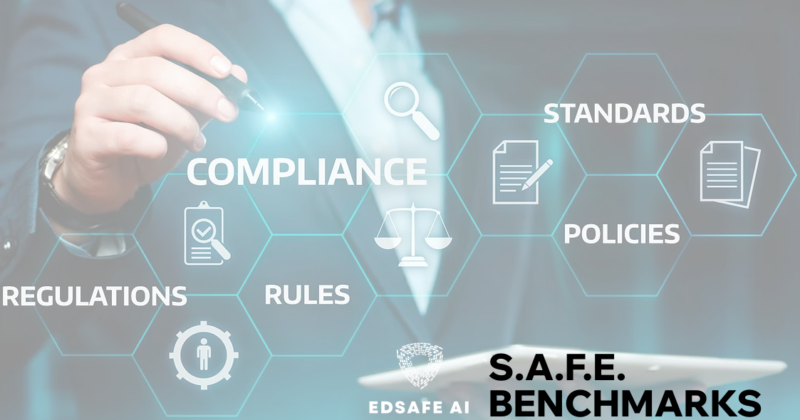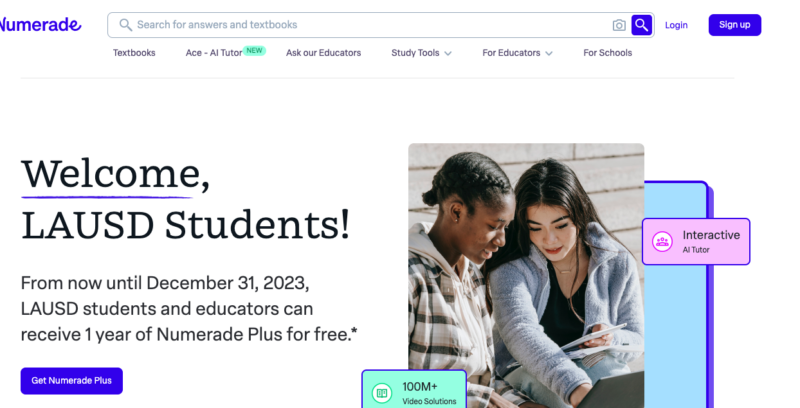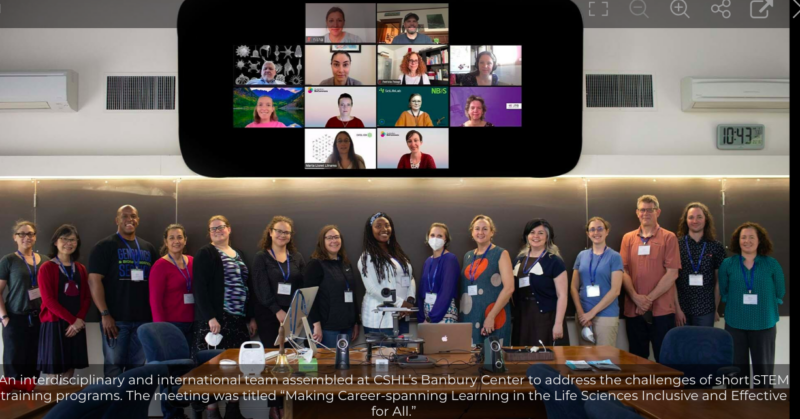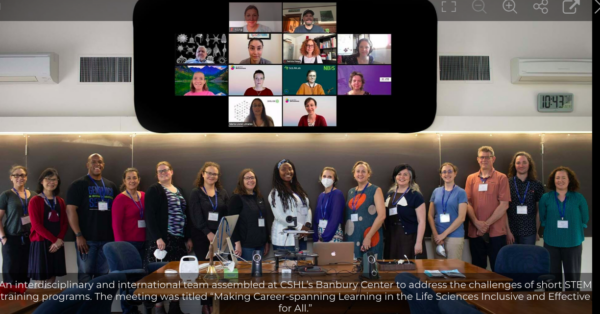El Segundo Unified School District (ESUSD), in partnership with EdSAFE AI Alliance, is proud to announce the establishment of a new AI Policy Lab. The lab will be focused on fostering safe and ethical use of artificial intelligence (AI) in educational settings, and part of a nationwide network of similar policy initiatives, including the New York City Public Schools AI Policy Lab.

“Our AI policy initiative underscores our dedication to integrating AI in a manner that prioritizes our values,” stated Melissa Moore, Superintendent at ESUSD. “Our primary objectives include ensuring equity, safety, ethical practices, effectiveness, and transparency. We aim to incorporate a wide array of perspectives in this process, including those of policymakers, industry experts, educators, students, and families, to collaboratively develop AI strategies and policies that resonate with our community’s unique needs and principles.”
ESUSD’s AI Policy Lab is designed as a collaborative, interdisciplinary partnership that encourages responsible AI development, deployment, and usage. The lab will provide ESUSD with policy recommendations and educational resources for teachers, students, and parents, and facilitate ongoing refinement to ensure policies are in sync with practical applications with a particular focus on community, parent and student engagement.
The national network – led by the EdSAFE AI Alliance – aimed at addressing the challenges and embracing the opportunities arising from the rapid introduction of AI in education. The network is comprised of 12 districts throughout the country who have come together to develop a “policy stack” – including acceptable use policies, parent communication and consent policies, and professional development resources for their districts.
By working together in an open science approach the network aims to create a comprehensive policy stack supporting AI’s responsible, secure integration in K-12 education by involving experts from various fields. This collaborative effort is a significant step towards leveraging AI in education more effectively and aligned with the SAFE framework.
Numerade, the AI-powered online STEM learning platform, announced the company is offering a free year of access to its Numerade Plus subscription to all Los Angeles Unified School District (LAUSD) K-12 students and teachers. With Numerade Plus, students and teachers will have access to a full suite of education features, including over 100 million textbook video solutions, expert-verified answers, full-length video courses, custom quizzes, unlimited “Ask an Expert” questions, and an AI chatbot tutor powered by GPT-4.

The initiative comes as downstream effects from pandemic-related learning losses continue to manifest. In fact, recent data from the state found that most California students don’t meet grade-level standards in math and reading. And historically, supplemental learning materials and tutoring haven’t been accessible to all students – nearly 1 in 5 upper-income families can afford to hire a private tutor, while only 7% of middle and low-income families can. As an LA-based company, Numerade is giving back to its community to help bridge this divide and reduce barriers by offering its premium features for free.
“This is a personal initiative for me, as Numerade was born from my own experience growing up in LA and seeing education inequity firsthand,” said Nhon Ma, CEO and co-founder of Numerade. “I believe that everyone deserves a quality education, regardless of their background. Numerade is my way of giving back and helping level the playing field – we’re proud to help support our community and give students opportunities and resources that they may not have otherwise.”
All teachers within the LAUSD will also have free access to Numerade Plus so they can incorporate Numerade’s trusted educational content into their instruction to reinforce the topics covered throughout the year. Numerade Plus can also help them save time with lesson plans, quizzes and even grading assignments.
To enroll in 12 months of free Numerade Plus, students and teachers can visit www.numerade.com/lausd and use their LAUSD email address to enroll between now and December 31, 2023.
Success in science, technology, engineering, and mathematics (STEM) demands keeping up with the latest tools and techniques. The AI boom, for example, has made coding and data management skills integral. But going back to school isn’t an option for most scientists. Short training programs like webinars and boot camps have become a popular alternative among busy STEM professionals. However, these formats can have significant shortcomings. There’s often no guarantee attendees will leave with the skills needed to advance their careers. And they can be exclusionary, preventing learners of all abilities and circumstances from benefiting equally.

An interdisciplinary and international team assembled at CSHL’s Banbury Center to address the challenges of short STEM training programs. The meeting was titled “Making Career-spanning Learning in the Life Sciences Inclusive and Effective for All.”
“We’ve all had horrible teachers,” recalls Jason Williams. Williams is Assistant Director of Diversity and Research Readiness at the Cold Spring Harbor Laboratory (CSHL) DNA Learning Center. “There have been efforts to improve science education at the undergraduate level for decades. But there’s basically no effort to improve education once you’ve graduated. It’s just assumed you’ll somehow keep up.”
To tackle this problem, Williams and collaborators have created a new teaching framework called the “Bicycle Principles.” It aims to make short STEM training effective, inclusive, and scalable. The principles originated from a meeting at CSHL’s Banbury Center think tank. Williams and co-organizer Rochelle Tractenberg recruited the world’s leading experts in short-format education. They identified the field’s biggest issues and ways to address them.
The group came up with two sets of principles linked like bicycle wheels. One wheel, Core Principles, focuses on effectiveness and inclusivity. Recommendations here include setting clear objectives participants of all abilities can achieve. The other wheel, Community Principles, revolves around reach, accessibility, and sustainability. It recommends making training adaptable for different institutions, especially those lacking the resources of large universities.
Williams says the Banbury meeting and the guidelines it inspired are the first of their kind. He hopes they won’t be the last. Williams explains:
“If we can raise awareness, we can start doing something about it. Our goal was to put the first flag in the ground to say, ‘Here are the key problems scientists face in professional development. And here are some potential solutions.'”
Such improvements could help researchers achieve their career goals and increase the impact of their work—familiar objectives for Williams and CSHL. The institution supports a number of science career paths through its education initiatives. These begin as early as grade school via the DNA Learning Center. And they continue throughout a scientist’s career, with CSHL’s Meetings & Courses Program.
After all, learning is a journey. The Bicycle Principles can make the trip more successful for all.
- Meet the Winners—Dr. Kellie Wilks, Chief Technology Officer, of Ector County Independent School District, TX (ECISD) - April 12, 2024
- Meet the Winners—Prince William County Public Schools (PWCS) in Manassas, Virginia wins the 2024 Community Leadership Award for Digital Equity. - April 12, 2024
- #CoSN2024 Conversation – Tom Ryan Co-Founder K-12 Strategic Technology Advisor Group (NM) - April 10, 2024

